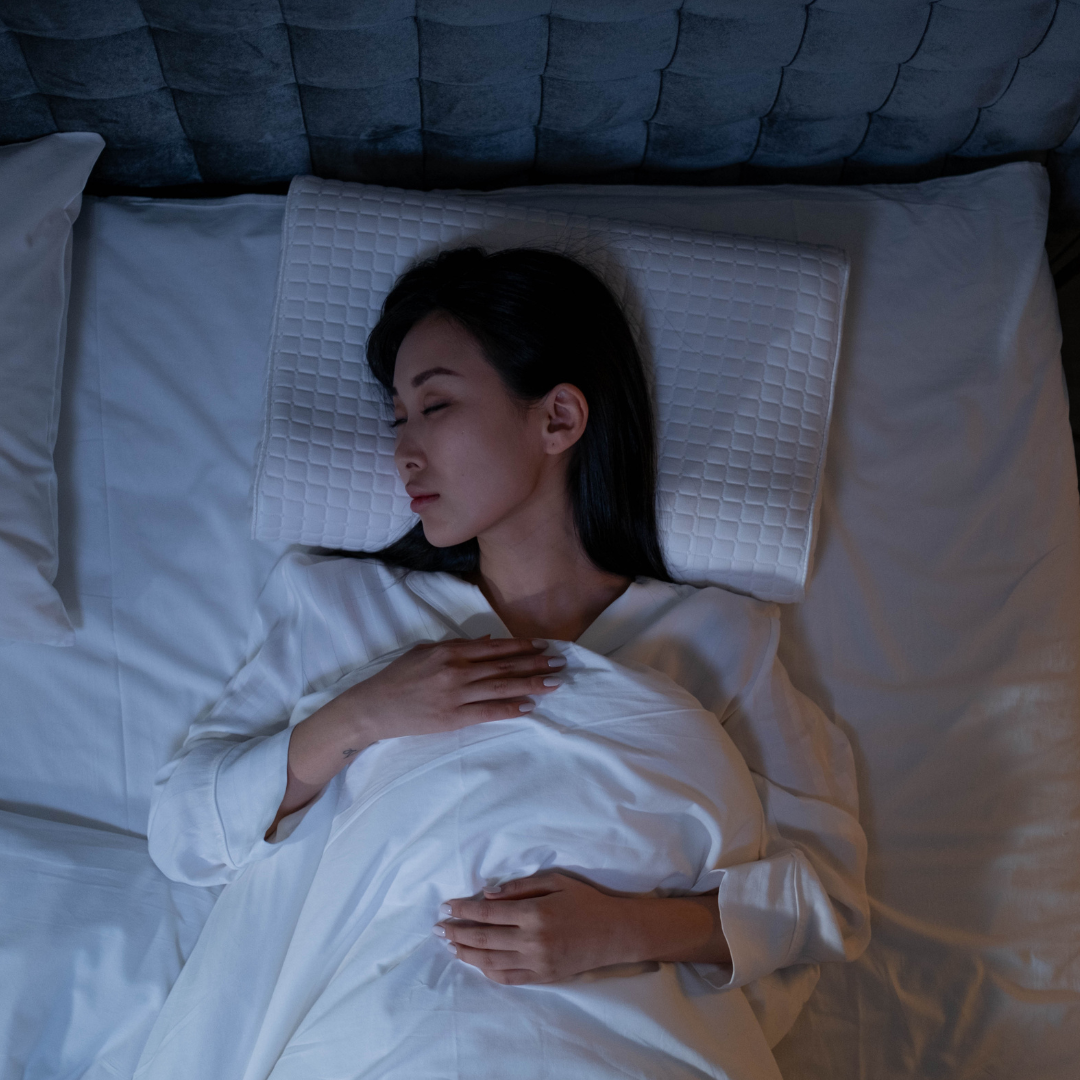Why Sleep Matters
for Your Gut
Did you know that poor sleep can throw your gut health off balance? Sleep is essential for digestion, gut microbiome health, and overall well-being. When you don’t get enough quality sleep, it can lead to increased inflammation, poor digestion, and even contribute to bloating, constipation, and anxiety.Improving your sleep hygiene can make a big difference—before reaching for supplements, let’s focus on healthy sleep habits.

Why Sleep Matters
for Your Gut
Why Sleep Matters
for Your Gut
Did you know that poor sleep can throw your gut health off balance? Sleep is essential for digestion, gut microbiome health, and overall well-being. When you don’t get enough quality sleep, it can lead to increased inflammation, poor digestion, and even contribute to bloating, constipation, and anxiety.Improving your sleep hygiene can make a big difference—before reaching for supplements, let’s focus on healthy sleep habits.
Did you know that poor sleep can throw your gut health off balance? Sleep is essential for digestion, gut microbiome health, and overall well-being. When you don’t get enough quality sleep, it can lead to increased inflammation, poor digestion, and even contribute to bloating, constipation, and anxiety.Improving your sleep hygiene can make a big difference—before reaching for supplements, let’s focus on healthy sleep habits.
What is Sleep Hygiene?
What is Sleep Hygiene?
Sleep hygiene refers to the habits and environment that promote deep, restful sleep.
When your sleep is disrupted, your gut and brain suffer.
The good news? Small changes in your nightly routine can lead to better sleep and better digestion!
Sleep Hygiene Checklist
Follow these steps to create the best sleep environment and routine:
🕒 Stick to a Consistent Sleep Schedule
Go to bed and wake up at the same time every day—even on weekends.
Your body thrives on routine and regulates hormones based on your sleep cycle.
📵 Limit Screen Time Before Bed
Avoid phones, tablets, and TVs at least 1-2 hours before bed.
Blue light from screens blocks melatonin, your sleep hormone.
🌙 Create a Relaxing Nighttime Routine
Wind down with calming activities like reading, meditation, or gentle stretching.
Try a warm bath or dim lighting to signal to your body that it’s time for sleep.
🌡️ Optimize Your Sleep Environment
Keep your bedroom cool, dark, and quiet.
Use blackout curtains and white noise if needed.
Invest in a comfortable mattress and pillows.
☕ Limit Caffeine &
Heavy Meals Before Bed
Avoid caffeine after 2 PM—it stays in your system for hours!
Stop eating at least 2-3 hours before bed to allow proper digestion.
🚶♀️ Get Daily Sunlight & Movement
Natural light during the day helps regulate your circadian rhythm.
Aim for 30 minutes of light exercise like walking or yoga.
🕒 Stick to a Consistent Sleep Schedule
Go to bed and wake up at the same time every day—even on weekends.
Your body thrives on routine and regulates hormones based on your sleep cycle.
📵 Limit Screen Time Before Bed
Avoid phones, tablets, and TVs at least 1-2 hours before bed.
Blue light from screens blocks melatonin, your sleep hormone.
🌙 Create a Relaxing Nighttime Routine
Wind down with calming activities like reading, meditation, or gentle stretching.
Try a warm bath or dim lighting to signal to your body that it’s time for sleep.
🌡️ Optimize Your Sleep Environment
Keep your bedroom cool, dark, and quiet.
Use blackout curtains and white noise if needed.
Invest in a comfortable mattress and pillows.
☕ Limit Caffeine & Heavy Meals Before Bed
Avoid caffeine after 2 PM—it stays in your system for hours!
Stop eating at least 2-3 hours before bed to allow proper digestion.
🚶♀️ Get Daily Sunlight & Movement
Natural light during the day helps regulate your circadian rhythm.
Aim for 30 minutes of light exercise like walking or yoga.
Struggling with Sleep?
Try These Supplements
If you’ve optimized your sleep hygiene but still need extra support, these natural supplements may help:
💊 Magnesium Glycinate
Relaxes muscles & supports deep sleep.
💊 L-Theanine
Reduces stress & promotes calm.
💊 Inositol
Helps regulate sleep patterns.
💊 Glycine
Lowers body temperature & improves sleep quality.

READY FOR BETTER SLEEP AND GUT HEALTH
Start implementing these tips today and watch how your gut health improves!
Save this guide & share it with someone who needs better sleep!
